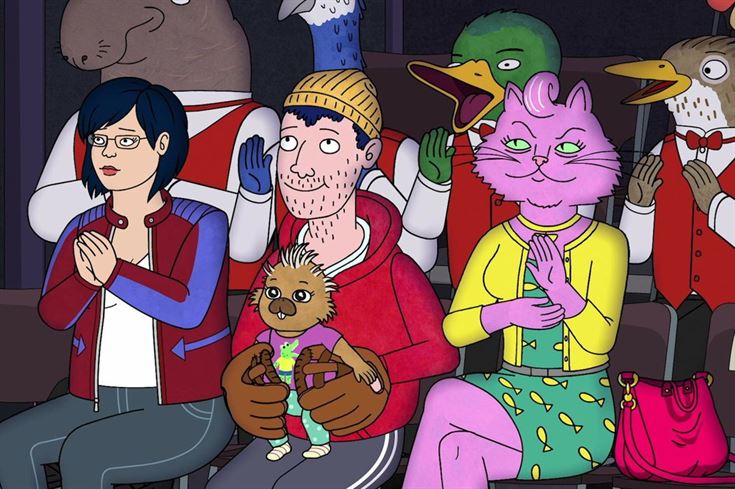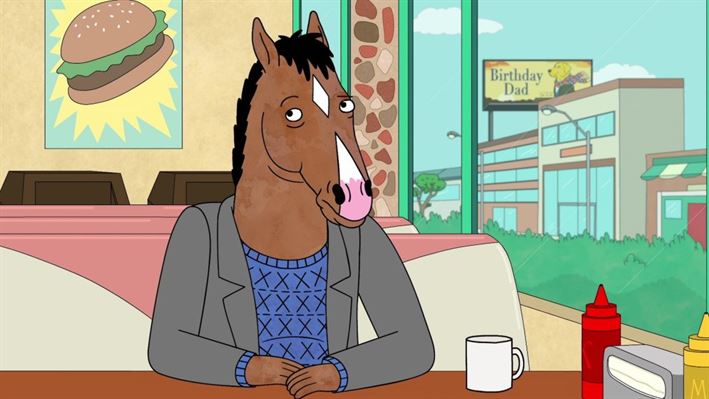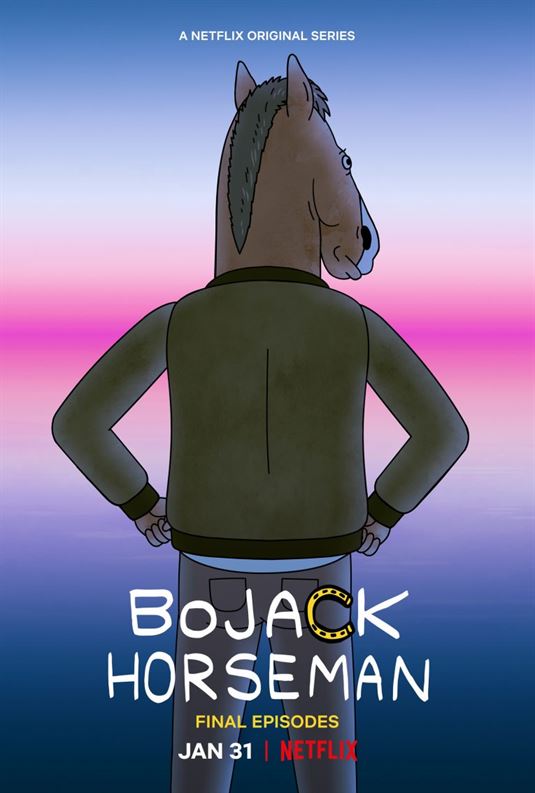After six seasons of deeply exploring the emotions, relationships and development of its character, “Bojack Horseman,” Netflix’s first original animated series hangs up its hooves in a final season that audiences did not expect, but one that they deserve.
“Bojack Horseman” first aired on Netflix in 2014 as the brainchild of series creator Raphael Bob-Waksberg. The series follows an anthropomorphic horse of the same name who was a former star of a hit 1990s sitcom. Now, as a washed-up, has-been celebrity, Bojack must navigate the changed landscape of Hollywood as he struggles with alcoholism, depression and his inability to develop and maintain personal relationships.
The series stars Will Arnett voicing the titular role. Aaron Paul, Alison Brie, Amy Sedaris and Paul F. Tomkins round out the supporting cast.
The sixth and final season is comprised of 16 episodes and was released in two halves: the first eight episodes were released on Oct. 25, 2019, and the last eight episodes released on Jan. 31, 2020.
The concluding season centers on Bojack finally working on self-improvement and overcoming his struggles. However, two newspaper reporters begin to dig into Bojack’s past, threatening his current pursuit of happiness and all the progress he has made thus far.
Like previous seasons, the new season develops and expands its world by devoting as much time to its supporting characters as it does to its protagonist.

The program’s supporting characters prove just as important as its protagonist.
Photo courtesy of Netflix
“Bojack Horseman” invests its audience by presenting the characters’ personal lives and their struggles as well. Viewers build attachments to these supporting characters in addition to Bojack himself, making for more emotional and personal television.
Bojack’s best friend Todd Chavez, known for his laziness but good-natured personality, has finally found a stable job as a nanny and enters his first serious relationship. Bojack’s friend and former agent, Princess Carolyn, attempts to adjust to her hectic life and career after adopting her infant daughter, Ruthie. Mr. Peanutbutter deals with issues in his engagement to his much younger fiancé, while Diane enters a new relationship and struggles to write her memoir.
Being that it is the series conclusion, the season focuses heavily on the conclusion of Bojack’s journey during the show’s run. Without giving too much away, the last season of “Bojack Horseman” opts to stray away from the conventional satisfying ending. Instead, it aims for ambiguity and realism. The uncertainty of the conclusion makes it all the more meaningful and emotional.
Not only must Bojack come to terms with his past coming back to haunt him, but now he must come to terms with his friends growing up and no longer needing him anymore. Instead of seeing where everyone’s journey takes them, we are given optimistic looks into what their futures could be.
Most shows with antihero protagonists ultimately result in the end of the hero’s journey, a conclusion to satisfy longtime fans of viewers of the show. Despite this, “Bojack Horseman” presents endings how they truly are: uncertain.
Life is open-ended and the future is what we make of it. Through Bojack’s mistakes, viewers are taught that every day can be a fresh beginning. Making mistakes is part of the human experience. No matter how lost we may feel or how afraid of the future we might be, we can start over.
Bojack is imperfect and that is what makes him so relatable. Any viewer can find a part of themselves in Bojack. If not, then they can find themselves in any of the supporting characters.
That’s the beauty of the world of “Bojack Horseman.” The situations are outlandish, but the feelings behind them are real. Most of the characters may be animals, but the humanity they exhibit is more real than any human character in any live-action television series.

The series follows Bojack Horseman, a washed-up celebrity struggling with depression and alcoholism.
Photo courtesy of Netflix
I saw parts of myself in Bojack from the very first season. Bojack helped me in a time when I didn’t even realize I needed help and that’s the way many viewers feel about the show. Audiences go through the same therapeutic journey of self-actualization that Bojack undergoes.
The writers’ goal here is to help anyone watching the series improve themselves and learn from Bojack’s mistakes, and it’s effective to the very end. I am a better person thanks to this show.
Thank you for everything, Bojack. Thank you for all the alliterative tongue twisters, for Todd’s odd but successful business ventures and for all the powerful and emotional monologues. Thank you for taking us on this journey with you. We watched you grow from just the “horse from ‘Horsin’ Around’” to so much more than that.
The world had never seen a show like “Bojack Horseman” before. It’s unsure if it will ever see one like it again. What is certain is the impact “Bojack Horseman” has had on its fan base and the landscape of television. Comedic tones with outrageous but real characters make for an emotionally nuanced viewing experience, resulting in one of the best television series of the last decade.



